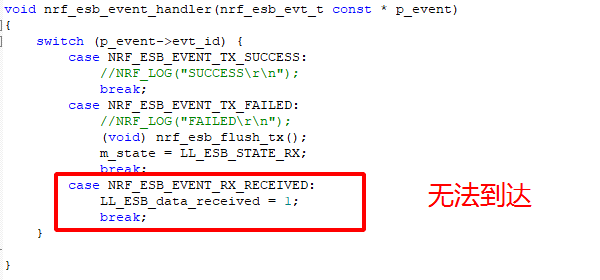Hi
sdk:17.1 ble_app_uart(esb_timeslot))
When I was conducting the integration test between my device (nRF52832) and the external device (nRF24L), I encountered a problem.
The nRF24L sent a message via 2.4GHz. The nRF52832 was able to enter the function "static void on_radio_disabled_rx(void)", and from the code in this function, m_rx_payload_buffer showed the correct data content, but the length seemed incorrect (this has not been confirmed yet). However, it was still unable to reach the top-level interrupt function of ESB, nrf_esb_event_handler(). Could you please tell me if there is something wrong with this situation?
It should be noted that I used the esb_ptx in the SDK17.1 to send the message via 52832 development board or prodcuts(52810/52832) by ourself, and my NRF52832 transceiver was functioning properly.

Best regard


